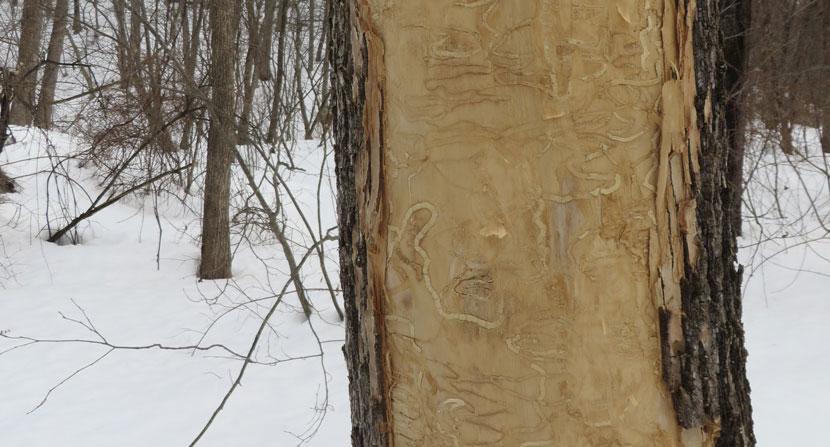- Tags:
- Something Wild,
- Forestry

The January issue of Atlantic Monthly online reported a curious connection between the death of 100 million ash trees killed after the arrival of the invasive, exotic “Emerald Ash borer” beetle in lower Michigan to an ensuing spike in rates of human heart disease and pulmonary illness including pneumonia.
Increased rates of human mortality due to cardiovascular and respiratory illness in the beetle infested areas accelerated as the emerald ash infestation progressed. In one recent study across fifteen states, the spread of the ash borer is associated with thousands of additional human deaths.
Trees are vital to human physiological survival. The absence of trees translates into a decrease in the abundance of oxygen. Trees act as air filters, cleansing pollutants with measurable effectiveness in urban areas.
A landmark study of patients recovering from surgery in a suburban Pennsylvania hospital documented how patients with trees outside their windows recovered faster, requested fewer pain meds and experienced fewer surgical complications than those with views of a brick wall.
Studies reveal natural settings capture people's attention and foster a state of mind where negative thoughts and emotions are overtaken by a positive sense of well-being. Public health studies produce evidence that nature has a positive impact on wellness by reducing anger, sadness and stress.
Increased human mortality as the beetle infestation killed trees from Michigan to surrounding states may re-enforce our relationship to trees.
Another interesting research study correlates human birth weights and incidence of crime to presence of trees. More here: http://www.fs.fed.us/pnw/sciencef/scifi137.pdf
